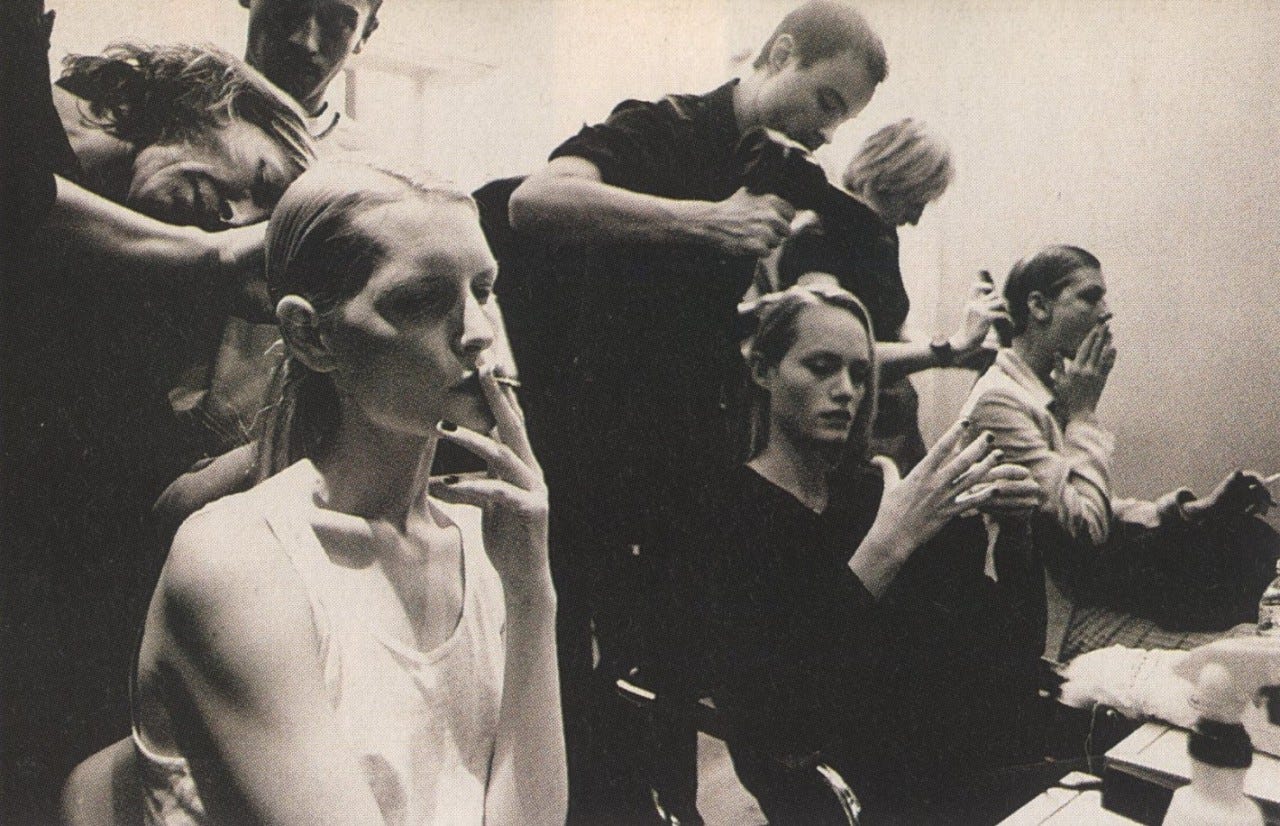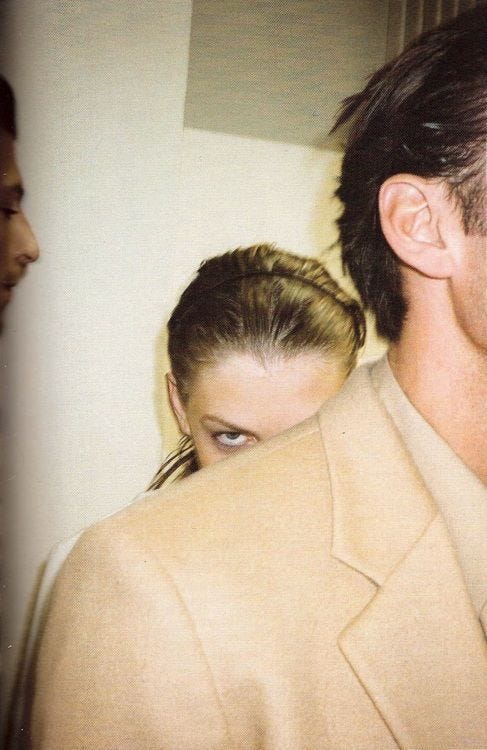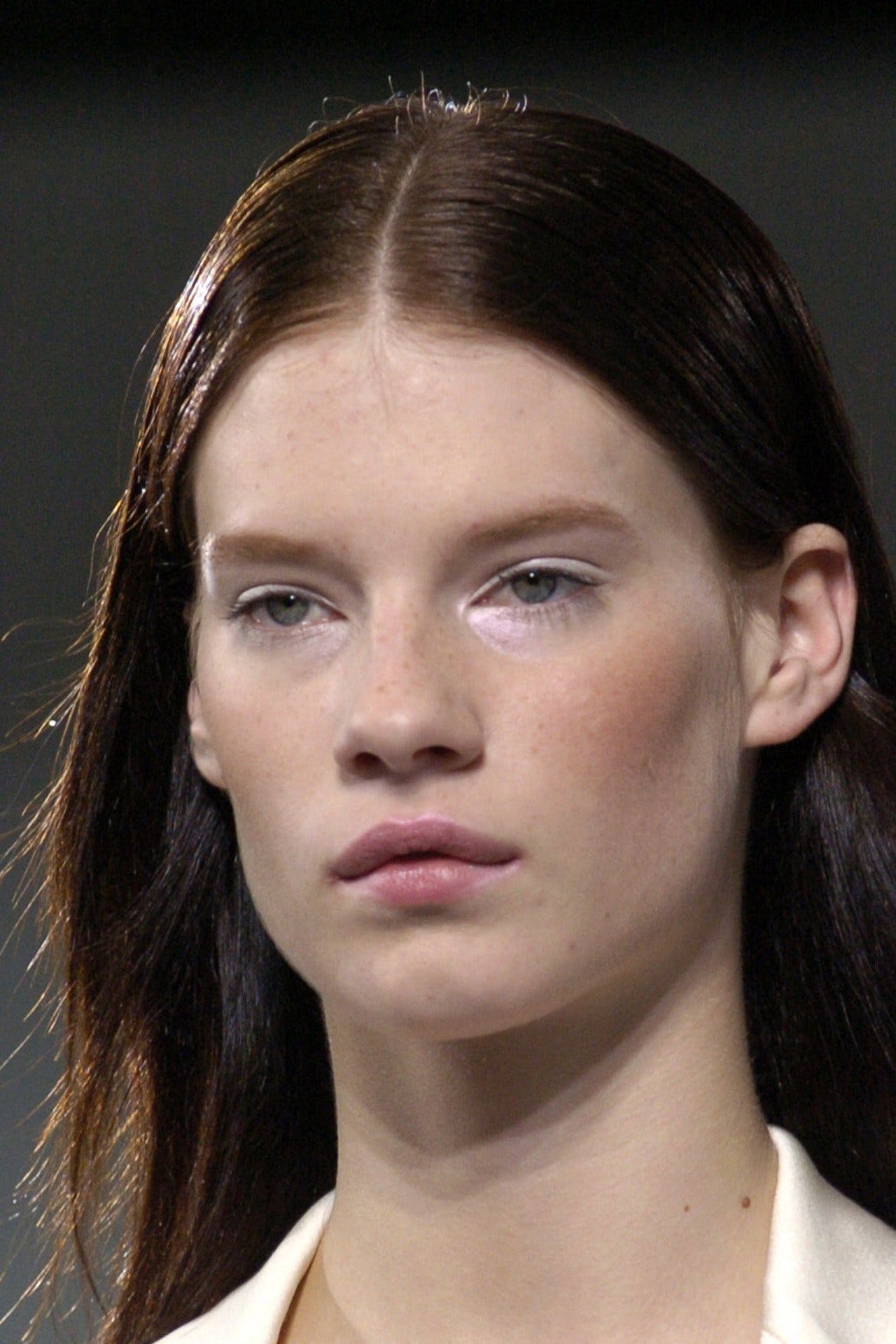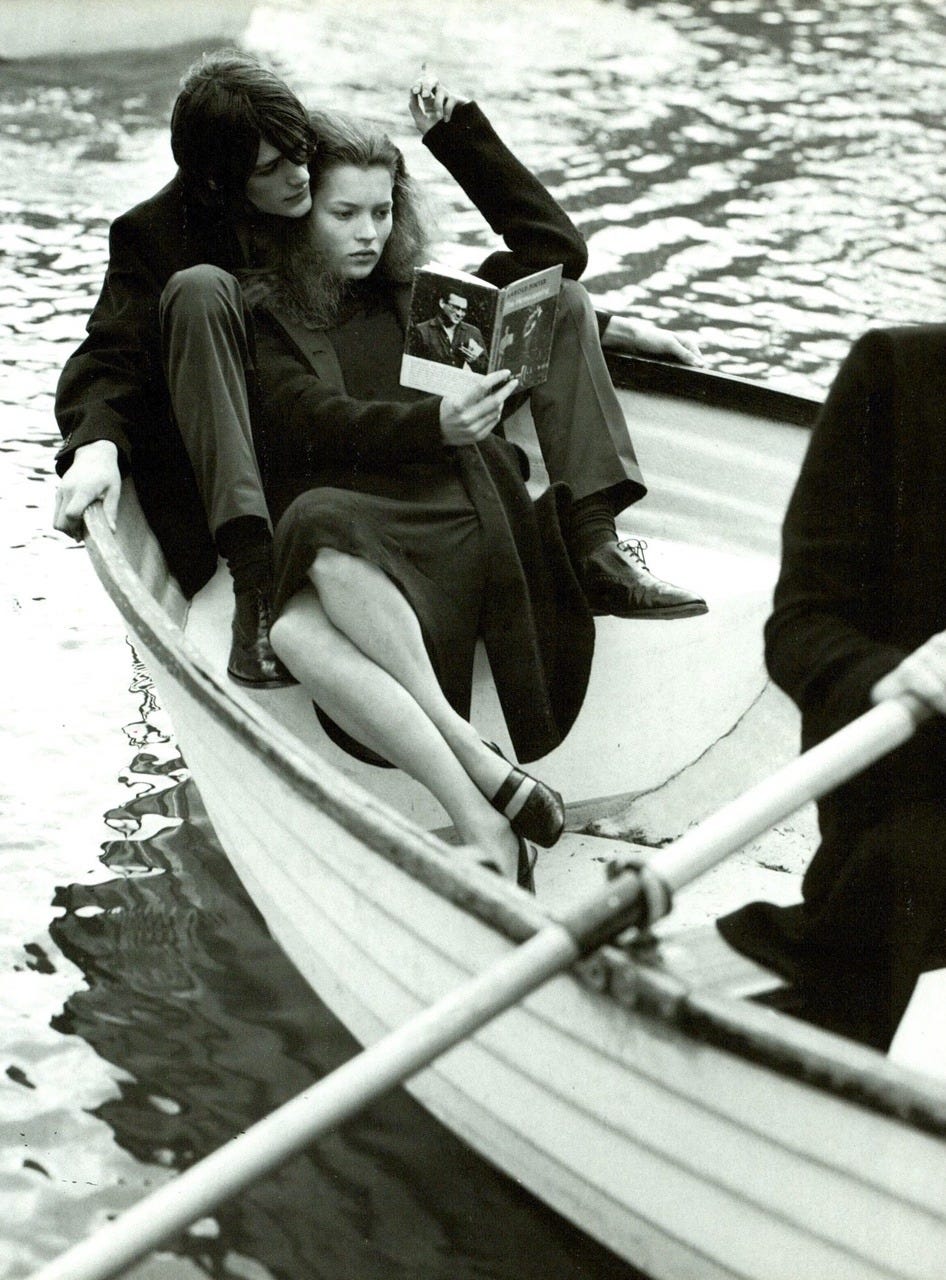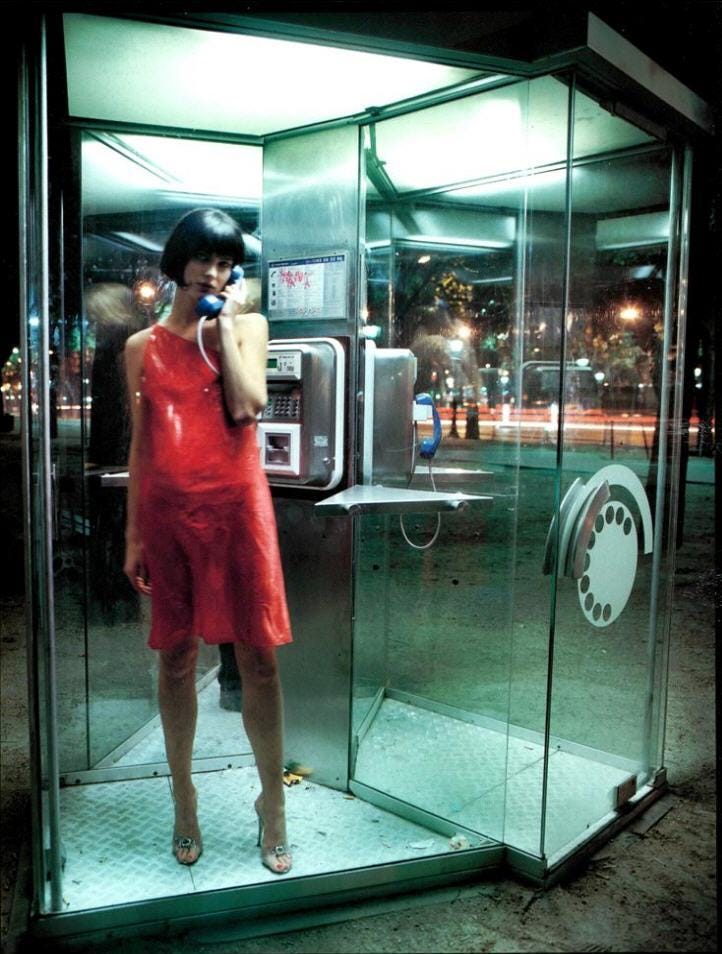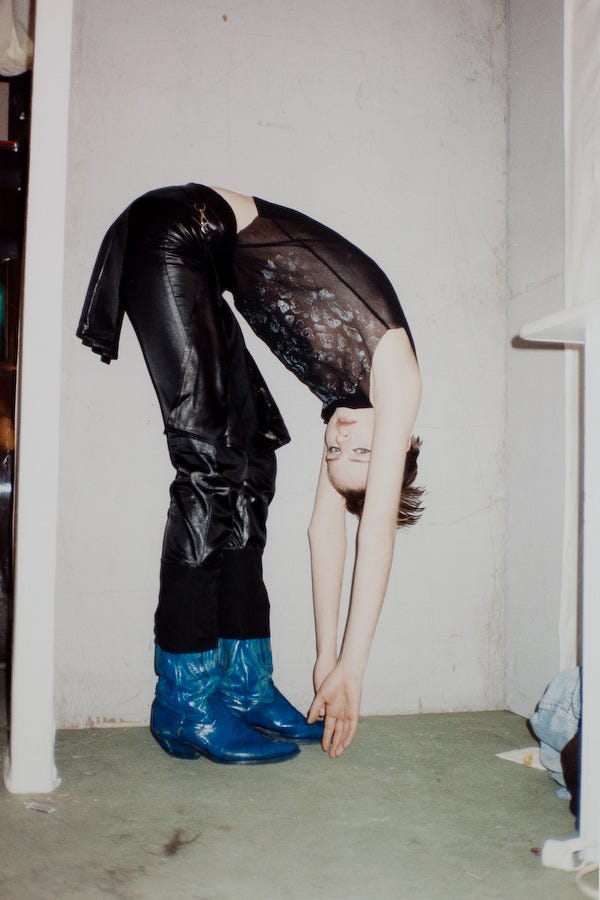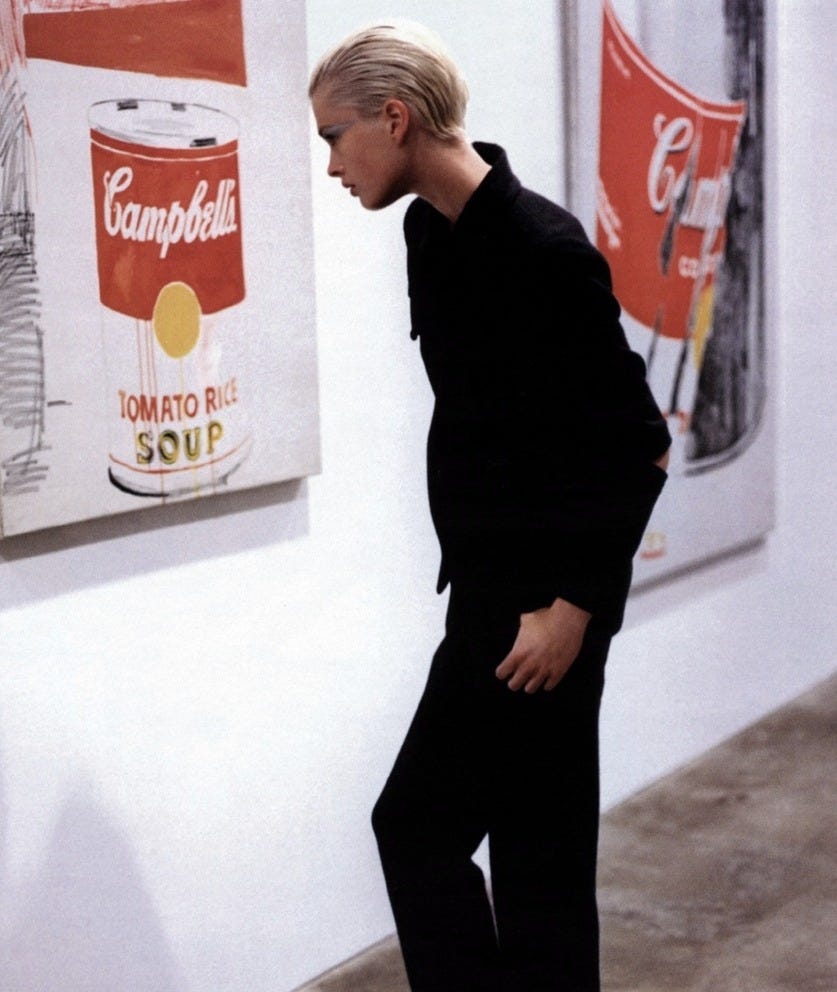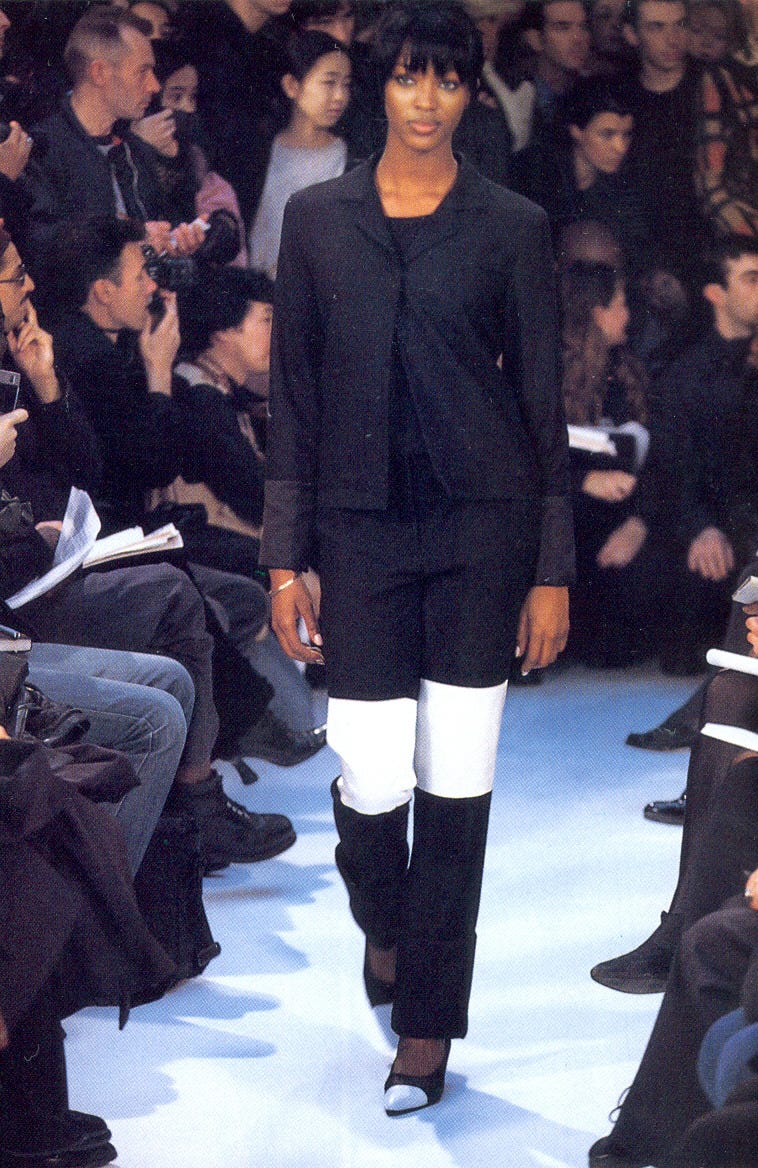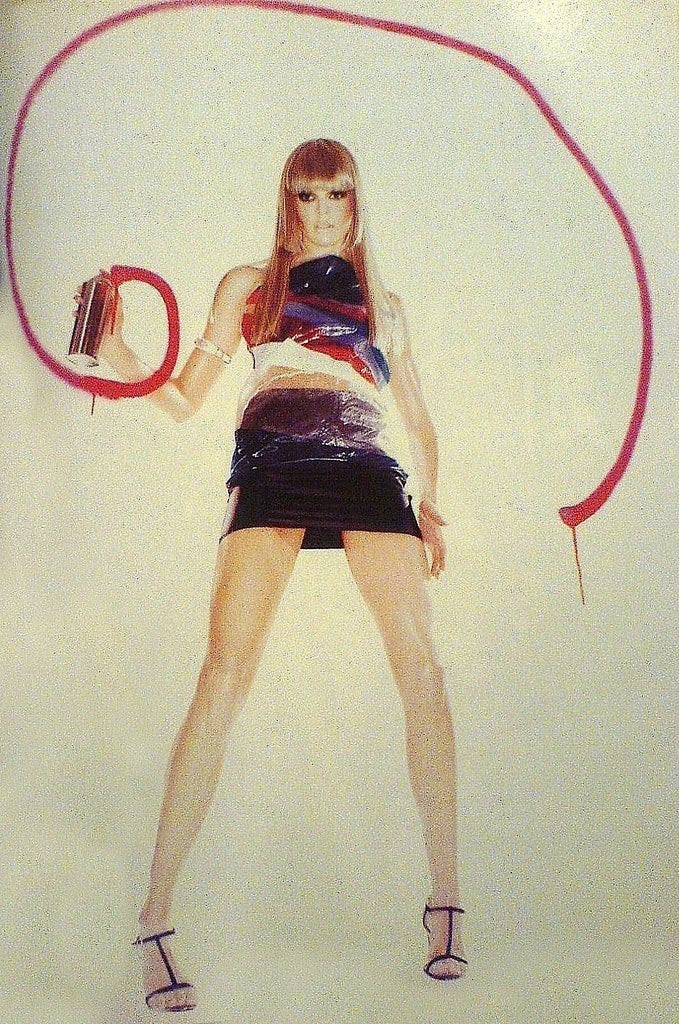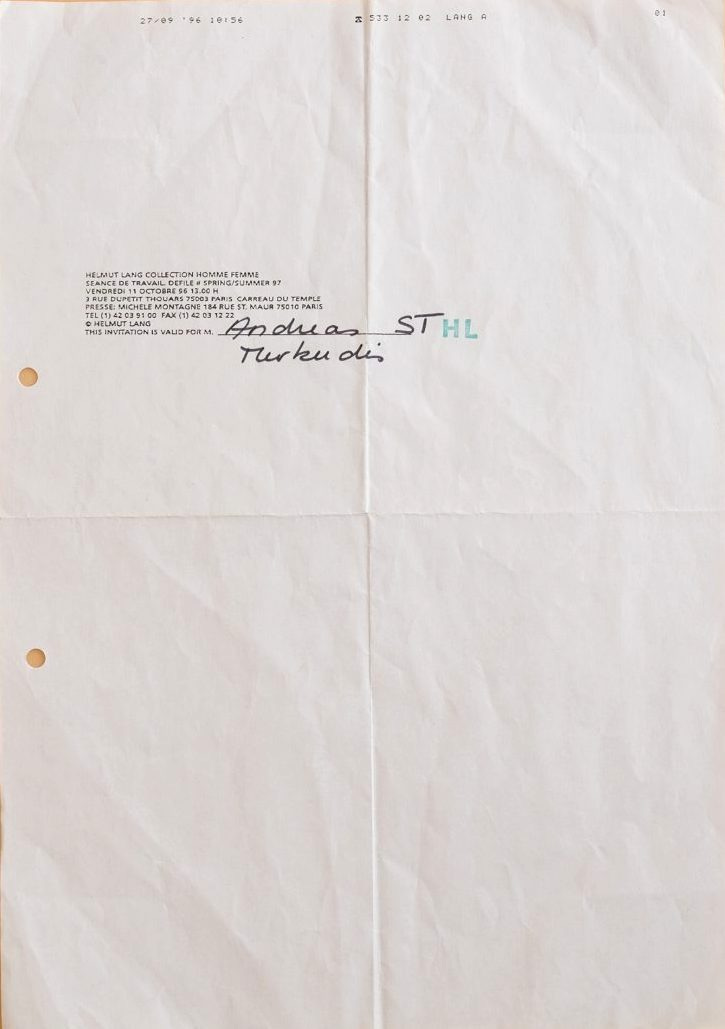About a month ago, I became a mother. Words only prove their inadequacy when I attempt to describe the sacrifice, pain, joy, and transcendent beauty of this experience.
Throughout my pregnancy, and especially now, as I enter into a new phase of life, I am simply overflowing with thoughts of what I would tell my younger self. What would I tell the 21-year-old, ponytailed undergrad, the 23-year-old homesick grad student living abroad, the 25-year-old who just broke up with her long-term boyfriend, the 26-year-old who moved to New York City to “follow her dreams” but also wanted to “see about a boy”? (Spoiler: we got married.)
I would tell her a few things. And here they are.
They are divided into a few key sections: lifestyle & miscellaneous, money, work (both corporate and creative), job dos and don’ts, the most important virtues to cultivate in your 20s, health, relationships, and spirituality.
I’m not a lifestyle writer or advice columnist, and I probably won’t write something like this more than once every decade. (So if this isn’t your thing, feel free to ignore it.) But as I take on this monumental transition to motherhood, I figured now is the time. So, here is my unfiltered advice to myself on how to make the most of one of the most important decades of one’s life—one’s twenties.
Before we get into it, a few caveats and disclaimers:
There is little nuance here and I am extremely blunt. This is not catered to your unique personal situation as that would be impossible. You are reading a compilation of advice I would tell myself, and nothing more. Even if you like my other writing, you might not like everything you read here. It might feel like tough love, and it might fall on deaf ears. To that I say: welcome to your 20s.
What qualifies me to give advice? Probably nothing. But over the last decade, I think I’ve learned a thing or two about seeking fulfillment in our chaotic world. Any small crumb of wisdom you may find here will still have to be made your own.
This may look relatively short for such a broad topic, but it’s because I respect you and your time and I value my privacy. I’ve always disliked the “self-help” genre, because the books are so long-winded and peppered with fake/boring personal anecdotes that do nothing more than pad the page count.
And the final disclaimer: I am not a lawyer, financial advisor, doctor, nutritionist, therapist, monk, or moral authority. Thankfully, I have no authority over you in any way.
With all that said, let’s start small, with lifestyle and general advice, and build toward bigger, more important things, like relationships and spirituality.
(All images are some of my favorite archival Helmut Lang shots ranging from 1993-2005—a mix of runway, backstage, editorial, and campaign.)
Lifestyle & Miscellaneous
Trust your intuition.
This is the most essential tool you have, especially as a woman. Odds are, you know what to do and you are capable of solving your own problems. I’ve written at length about cultivating intuition here.
Create an inner sanctum of quiet strength.
Easier said than done. This is about forcing yourself to be strong when you want to be hysterical. Your 20s can be really, really hard. You’ll probably get some terrible news at some point (I hope not, but life can really suck sometimes), you’ll probably have some serious drama to deal with, you’ll probably be jealous of your friends, or people you see online. Jealousy is actually a useful tool, because it helps us identify and reckon with our own desires (not all of them good!). Take time to recognize the things that are going right for you, don’t focus on all the things that are going wrong. Allow the bad things to guide you toward the good things (more on this here). Resilience is a terrific quality to possess. Start building your resiliency now. A little “I’ll show them!” can jumpstart this process, but eventually you’ll learn that it’s less about showing them, and more about showing yourself.
Maintain high standards.
In other words, don’t settle and have some self-respect. This is true in all aspects of life. You don’t need to be conceited about it or talk about it, just be about it. For instance, when dating, there’s a subtle way to communicate to men that their best behavior is necessary with you. And it’s certainly not overtly stating, “I am a high-value woman.” It’s a combination of social grace, elegance, and discretion. There’s an ideal attitude, and it’s hard to define, but it encompasses kindness, intelligence, good will, a sense of humor, sensitive understanding, and self-respect. Women with this attitude turn heads in every room they enter. People really do treat you the way you treat yourself, and the people who sense that they won’t be able to easily manipulate you will run the other way. This is a good thing.
Generally speaking, do the harder, less fashionable thing.
I’m not saying you need to be a contrarian (though that’s arguably fashionable these days). What I mean is that the harder, more thorough, less popular path is usually worth it. There are basically no shortcuts in life, and you’ll only waste your time and energy looking for them. Besides, in the rare case you find a shortcut and it works, you won’t feel you’ve earned the prize.
Work on your manners and social graces.
When someone has excellent manners, people don’t actually notice the manners, they notice the person. Some manners are obvious—saying please, thank you, and excuse me, covering your mouth while you cough, not chewing with your mouth open, respecting others’ personal space. But exceptional manners are harder to define, and the shading of behavior is subtle. For instance, the lost art of conversation. So many conversations these days feel like two egos battling for supreme position, or are extremely pragmatic and boring. Conversation can start very simply: the weather, the surroundings, the news. This isn’t cliché. (And even if it is—too much has been said against clichés, and not enough in their defense!) When someone enters the group, introduce them immediately. Make sure that the topic of conversation includes everyone, and don’t discuss money, religion, politics, or moral or ethical questions in casual conversation. Speak at a reasonable volume for the setting you’re in. You get it.
Resist commodifying or typing yourself to get attention.
You’re not a girlboss, a clean girl, or such a Pisces, you’re you, and there’s no one else quite like you. Those kinds of labels can be fun, I guess, but ultimately are limiting. It’s best to take an expansive view of the self. You don’t have to type yourself, or fit in with a specific group, box, or trend. In other words: it’s good to be different. Social media can really flatten us out. Don’t listen to bogus advice like “a woman who doesn’t wear perfume has no future.” (That was Coco Chanel, lol.) Try not to engage in purely attention-seeking, ultimately embarrassing behavior. And don’t divulge every aspect of your personal life on social media. Strangers who don’t know you are incapable of actually caring about you. If you need help, reach out to the people who know you in real life. Remember: discretion is extremely attractive. It is seldom wise to tell all.
Refine your taste.
Refining your taste is harder—and more important—than buying what’s merely “fashionable.” Anyone can purchase what’s popular, so don’t waste your money on the trendy stuff you see on Instagram, TikTok, SSENSE, or Bella Hadid. The older you get, the less appealing trendy clothes become. Someone who is always perfectly on trend does not necessarily read as stylish or sophisticated; they read as slightly amateur. Focus on cultivating your own personal taste and sense of style. Hopefully it will continue to evolve as you get older.
There are trends that I definitely participate in, but it’s nice to try to do it in your own way, instead of copy-pasting what you see online. This sounds really obvious, but a good starting place is picking celebrities/models/etc. with a similar body type or coloring as you, and copying their outfits in your own way. Google the person you’re thinking of and “street style,” “runway,” “red carpet.” Go back a decade or two. You’ll find some really cool stuff if you dig for it. When it comes to buying clothes, I think vintage is the way to go for most “statement” pieces, and then get your basics at Uniqlo or something like that. When you shop vintage, no one will be wearing the same thing as you, which automatically makes you stand out. The quality of the fabrics and construction is generally much better, too. It takes some practice to get good at vintage shopping, but you’ll figure it out.
When it comes to beauty, play to your own unique features.
I wish I could get the time I spent watching Emrata makeup tutorials back, lol. Again, this is so obvious, but what looks good on a sultry brunette is not going to look nearly as good on me (a pale blonde). Play up the most unique aspects about your features, skin, and hair. A personal example: I have a ton of moles and freckles, and I used to hate them so much. I literally fantasized about getting them all removed. Now I love them because they’re unique to me. Sometimes I even draw over them with an eyeliner pencil to make them stand out even more. It is possible to love the way you naturally look.
That said, it’s important to not fixate on your appearance. The most attractive people are not preoccupied with their “angles” and don’t look in the mirror all day—they’re too in the moment and too busy. Your simple, everyday makeup routine should take about five to ten minutes. If it takes longer than that, you’re probably doing more than you need to. (The line between beautiful and enhancing vs. too much is thin. Makeup can definitely have diminishing returns. That said, I love giving myself all the time in the world to get ready before a date or event.)
Take great care with your living space.
Your surroundings certainly elevate your mood, but you don’t have to have a huge apartment and a ton of money to create a beautiful home. (Try to find a place with good bones—real hardwood floors, high ceilings, and plenty of natural light.) Again, I wouldn’t buy much that’s new, I would shoot for more unique, antique stuff, and items that have personal meaning. Nothing makes me feel more dead inside than these apartments I see on TikTok with the mass-produced, grey-and-gold theme. It’s like living in a dermatologist’s office. Books really warm up a space. A cool lamp goes a long way. Fresh flowers brighten any room. I would advocate for getting rid of stuff more than you bring things into your home. (You’ll probably be moving a lot in your 20s anyway.) Try to possess fewer items of higher quality. Have some clear surfaces and blank walls because it allows the eye to rest. If you’re buying “decorations,” you’re doing it wrong.
Read literally all the time.
If you’re reading this, you probably don’t need to hear this one. But I want to emphasize something small that, I think, makes a tremendous difference. Reading is the main way to expand your mind as an adult. Media consumption simply does not cut it. If you want to separate yourself intellectually from your peers, develop serious interests and passions, feel calmer and more collected, have deeper, more interesting conversations, and rarely feel bored—you have to read. (Books, by the way. Not Instagram captions, not lists, not product recommendations from The Cut. Books.) Our lives are so short, and the only way to live other lives is through reading. Podcasts, YouTube videos, Netflix documentaries, TikTok—these are fun distractions, sometimes interesting, but you won’t retain the information the way you will with a book. I’ve learned so much from the books I’ve read over the years, and I’ve retained a good amount of it, too. (That’s more than I can say about my education.) When you are the one seeking the knowledge, it sticks. It also helps you get off your phone. And I know we could all use a bit more of that.
Money
No one is coming to save you.
This is probably obvious, but I do think it’s worth stating that you cannot assume you’re going to get a huge payday one day. No one is going to come up to you and be like, “Hey, do you happen to want 10 million dollars?” Lol. I know it sounds so silly, but I do think young people kind of delude themselves in this way. They act like money isn’t real in their 20s and then they have no savings or investments when they’re 30, or worse, are in serious debt. Odds are, you’re not going to be a millionaire in your 20s. You’re going to have to work hard, just like everyone else.
Make a budget and stick to it.
I personally use an extremely thorough budgeting app called YNAB (You Need A Budget). Take one weekend and get totally up-to-speed on it. It will pay off for the rest of your life. I have a line item for literally everything I spend money on—from takeout, to haircuts, to books—and I budget every cent. My husband and I combined our finances and we still use this and check it together frequently.
Save and invest.
You should have some cash on hand in case you lose your job, or some other emergency happens. Once you have that built up, you should regularly invest your money. Even $100 a month is better than nothing. Look up “compound interest calculator” right now. You can thank me when you’re in your 60s. I personally use Vanguard because of the low cost, but there are lots of options. (See also: “The Loser’s Game”.)
But don’t be too frugal.
It’s important to treat yourself (and your friends and family) every once in a while. After all, what is money for? Too many people are penny-wise but pound-foolish, spending hundreds of dollars on clothes they’ll wear once while venmo-ing their best friend for a coffee. Allow yourself a few small luxuries. When starting out in your 20s, this might be a latte at your favorite café to help you get through the work day. In your late 20s, it might be something bigger. I distinctly remember the first “splurge” purchase of my early 20s—a grey wool coat from Aritzia—that I bought after saving for months. I loved that coat and wore it to work every day. Build it into your budget, and go buy it in person if you can. It feels really good to reward yourself with nice things when you know you can afford them. (I recently bought myself a nice watch, which was my 30th birthday present to myself. I’m glad I waited that long, because when the day finally came when I could buy it, I knew I could afford it, and perhaps more important, I knew I still wanted it. I wear it every day.)
Buy the best you can afford, and use it.
Not for everything, obviously. I’m still using the same stainless steel IKEA cutlery I bought when I was 23. You know what’s worth investing in, and what you’ll value 10+ years from now. Generally speaking, don’t buy cheap stuff made of plastic or polyester. It won’t last and you will throw it away. As Benjamin Franklin said: “The bitterness of poor quality remains long after the sweetness of low price is forgotten.”
I’ve written more about budgeting and consumer culture here.
Work
It’s fun to work hard at something you love.
Working hard feels good. Find what you love, and put some sweat into it. Things become more interesting, you become better at it, it’s a win-win all around. That said, while you can work hard at stuff you hate, eventually it becomes impossible. So, it’s best to find something you genuinely enjoy. This process may take many years.
If you’ve got that dog in you, you can study anything you want.
I am a Humanities Truther. Study what you enjoy and what genuinely interests you. Pick something real that teaches you how to think in both a structured and creative way. My bachelor’s is in history (ancient Rome), and my master’s focused on classical art (Greek and Roman sculpture, mainly). I’ve always loved that stuff, still do, and always will. I personally think majors like English, creative writing, history, history of art, philosophy, etc., will always be more valuable and interesting to you, and your future career prospects, than anything requiring rote memorization or something that can be learned “on the job.”
Meaningful work is hard to find, but it is the only thing worth seeking.
I struggled for almost the entirety of my 20s to strike a balance between providing for my material needs and exploring my creative interests. In your 20s, how you earn a living and what you enjoy doing most are usually not the same thing. I don’t think you need to make a living from your art necessarily, though that’s usually the eventual goal, and I also don’t think we need to delude ourselves that whatever we do for a living is somehow art. They can be two separate things. The world takes all kinds. You also don’t need a “creative passion” to find meaning in your work. Being a nurse, for example, is more pragmatic than creative, but it can also be deeply meaningful. I think my former corporate colleagues, for the most part, really enjoyed the work we were doing. I had a hard time connecting with it. That’s fine—on both sides—we were just different. Meaningful work looks different to everyone, and it’s worth trying to figure out what you personally find meaningful.
You’re going to need to get a job.
Sorry, but you’re not going to be an amazing, world-renowned painter at 22. You won’t have a crypto empire. Aside from “that one guy,” this just doesn’t happen. Develop some marketable skills, earn a living, attain financial independence (huge), and work on your “art” in your spare time. Ideally, your job is not so taxing that you don’t have any time for friends and creative work on the side. If your parents are bankrolling your life in NYC, congrats I guess, but I don’t know anyone like this who is doing anything even remotely cool or interesting. Without a job, you are stunting your growth.
Your day job can also fuel your creative pursuits, especially if you’re a writer. No one talks about this enough. You need to meet some characters and have some real life experiences. Too much writing these days is “writers writing about being writers.” In order to write, you need to have lived.
If an artistic life speaks to you, that’s great, but know that you’re probably not very good at it yet. (And that’s okay.)
But Catherine, what if I’m a genius? Then be one. But you can also spend your 20s exploring things, trying stuff out, figuring out your talents, and discerning your vocation. You probably aren’t that interesting yet (sorry), you probably don’t have that much to say (sorry). You just haven’t lived much of adult life yet. Again, that’s what your 20s are for. Squeeze the most out of your life. Use your angst at what I just said to fuel your creative ambitions. Prove me wrong. Work on it every night after work and before bed—that’s what I did. When the time comes to quit your day job, you’ll know. (Also, if you think you want to do something creative, but you don’t know what, The Artist’s Way is a good place to start. I’ve recommended it to countless friends.)
Creative work is a long game, and you’re probably not going to do your best work until your 30s or 40s.
Our society is addicted to the tales of the 22-year-old pop star, the 19-year-old actress, the 24-year-old novelist. There are like six of these people, and a good deal of them are industry plants with powerful connections. Most people with a shred of creative integrity do not succeed right out of the gate. They persist, they work their asses off for decades, until one day it all finally pays off. In your 20s, don’t worry about being known for it, worry about being good at it.
About that job you’re going to have... some dos and don’ts.
Job DOs:
Eliminate the bad. I was a Division I athlete in college, and this was something our coach would say to us all the time. Eliminate the bad. In other words, don’t suck. The most basic thing you need to do at any job is simply be competent. This isn’t very hard to achieve, because it’s based on not under-achieving. To get where you’re going, you need to start the car in park, not in reverse. Your boss mostly wants to know that when they tell you to do something, you do it correctly. If you are a pair of “safe hands,” you have a lot of value in the organization. Eliminating the bad means not being late, not forgetting to do something, not having typos in your work, etc. You probably have a good idea of the ways you mess up at work—eliminate them one by one and you’ll quickly become a top performer.
Turn your ideas into solutions. Once you eliminate the bad, you can be proactive, highly competent, and resourceful. Slow down and ask yourself, “How would I solve this problem if it were up to me?” If you can identify a problem that’s one thing, but your boss would much rather you say something like, “Hey, I noticed [problem], and I was thinking I could [do this to fix it], what do you think? Google it. Figure it out yourself. This is good training for when things actually are your responsibility.
Perfectly honor your word. If you say you’ll do something, do it, do it right, and do it on time. This is how you build trust with the total strangers who are your colleagues.
Find people you like, and work with them as much as possible. If I had to choose between good people and good work, I would always choose good people. Good people can make boring work fun, but bad people can ruin even the most glamorous project. There are no good deals with bad people.
Write short, effective emails. If your email is longer than a short paragraph, most people won’t read it, and they’ll end up replying with whatever they wanted to say anyway. There are a few exceptions to this rule, but generally speaking, you need to make your communications clear and scannable. The shorter and more effective your written and verbal communication, the better. Long-winded emails have a bit of a sleeve-tugging, please-believe-me quality that makes people wary. Whenever I open a magnum opus email like this, my guard immediately goes up. Short emails are much more effective, and they take less time to write.
Have a clear point, and make it succinctly. That is, if you have one. You probably don’t know anything about what you’re doing when you’re first starting out, and fake confidence is glaringly obvious to those who have experience. Some people should have imposter syndrome. Please know that a lot of your colleagues are just humoring you while you learn. All good, that’s how you do it. Speak up when you have something valuable to say, or don’t say anything. Be aware of your audience at all times and read the room. You’ll notice that the most powerful people often speak the least. This is not a coincidence.
Dress the part. I would not recommend rocking “corporate side boob” at the office. In a corporate setting especially, you should look polished and professional at all times. When you dress down, or you clearly haven’t showered in a few days, you look much less competent. If this person can’t manage to shower and wear clothes like an adult, how can they manage their work? Clean, well-tailored black clothing will always work.
Keep detailed records. Keep a record of your responsibilities, accomplishments, hours worked, etc. Make them extremely detailed, and always date them. When promotion time rolls around, and you need to make a case for yourself, you’ll be glad you did. Same goes for updating your resume or portfolio. On the flip side, if you have an abusive boss (been there), you should keep detailed records of what they did and said to you in case it’s “your word against theirs.” Take screenshots of anything they put in writing. It sucks that you have to do this, but you should.
To read the rest, please consider upgrading your subscription. It costs less than a latte in Manhattan (too expensive for the latte, but hopefully reasonable for the writing).
Behind the paywall:
Job don’ts (really… do not do these things)
The most important virtues to cultivate in your 20s
The key to success in creative work (it’s actually obvious)
The question to ask yourself about your current/future relationship
The greatest advantage you can have in adult life (it’s not money)
My totally unfiltered thoughts on health & wellness, therapy, friendship, family, relationships, sex, love, marriage, motherhood, and spirituality
Thank you for supporting my writing.





